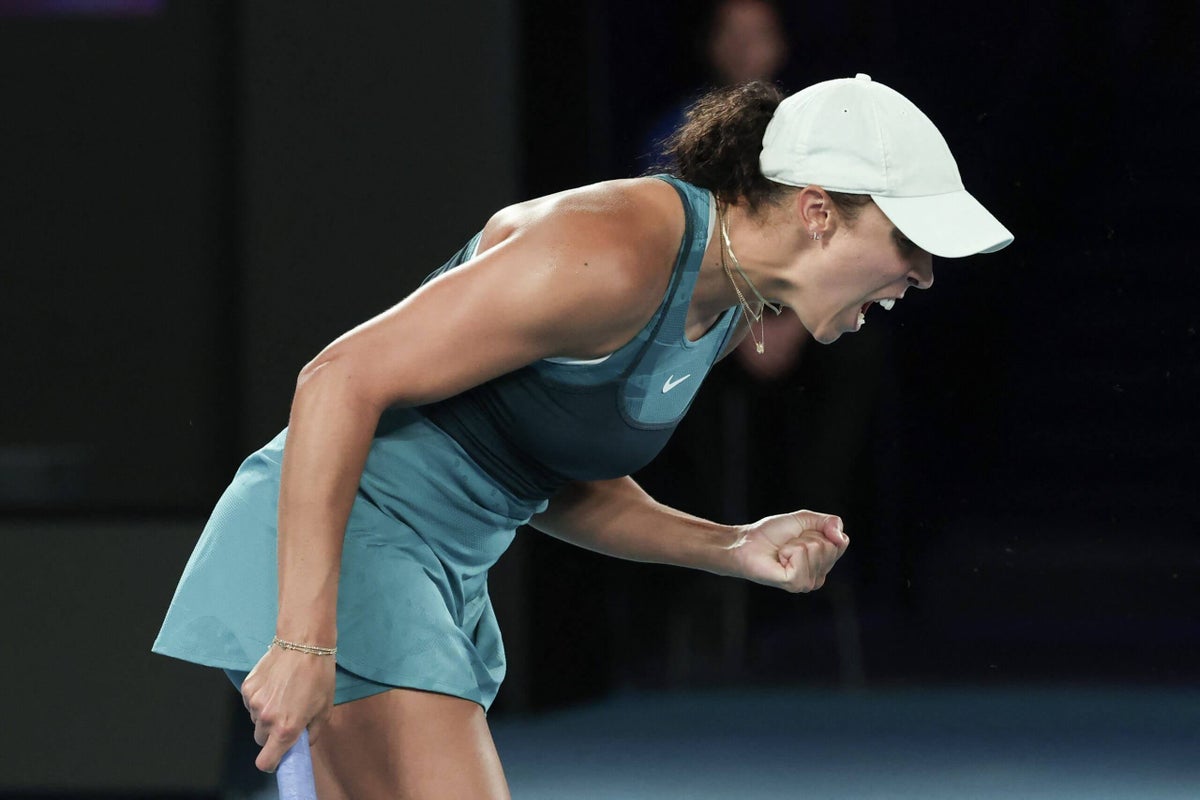MELBOURNE, Australia — Madison Keys is in the building.
With women’s tennis on the verge of an epic showdown between its top two players with the Australian Open title on the line, Keys, the 29-year-old American, crashed the party. She stormed back against Iga Swiatek to win their semifinal 5-7, 6-1, 7-6 (10-8)
Swiatek was aiming to play for a Grand Slam title somewhere other than the red clay of Roland Garros in Paris for the first time in more than two years, but she could not overcome an hour of uncharacteristically error-strewn tennis and a sustained surge from Keys.
Swiatek, the five-time Grand Slam champion and once-and-perhaps-future world No. 1, had little of the relentless efficiency of her other five wins during the fortnight. A match that always felt like it would be Swiatek’s to lose became that, after she went through a dip that lasted for the entire second set. It was marked by rushed forehands and tentative backhands, especially down the line, that couldn’t find the court or make their way over the net.
In the end, it was Keys’ grit that made the difference. Serving at 4-4 in the third set, Keys fought back from 0-40 and fended off four break points, any one of which would have given Swiatek the chance to serve out the match. When Swiatek did break and served for the match at 6-5, Keys found a clutch forehand winner into the postage stamp and a return deep to Swiatek’s shoelaces to turn the game and earn a double fault that sent the match into a 10-point tiebreak.
Still, when it was over Swiatek had lost just 31 games across six matches at the year’s first Grand Slam, mostly displaying a level of dominance that has always been missing from her game in the sport’s biggest events other than the French Open. Her groundstrokes have the spin and margin that disappeared in her defeats in 2024, and those qualities almost took her to the final when she earned the break at 5-5 in the third with a controlled but aggressive returning display. Some new tools, including a greater willingness to volley and come forward, had her on the verge in the tiebreak.

Iga Swiatek translated her almost-unerring dominance to hard courts for the first time in a couple of years during the Australian Open. (Yuichi Yamazaki / AFP via Getty Images)
But in Keys, 29, she faced a dangerous and talented, free-swinger who has been on this stage before, both in Australia and at the U.S. Open, where she was a finalist in 2017. Keys was always going to play aggressively and take the match to Swiatek. The question was whether she could execute over the course of a three-set match or whether the errors that come with the territory of her cracking groundstrokes would seep in.

GO DEEPER
Madison Keys will win or lose, her way
Keys did execute, for the better part of two-and half hours. For much of the night, she was the better, more assured player. Even in what could have been the final game, she drew even at 30-30, with blasted forehand to the postage stamp at the back of the court, before saving a match point with a return to Swiatek’s shoelaces and earning a double fault with her front-foot returning.
Then, down 7-8 in the tiebreak, Keys crushed two serves, one of them an ace and one Swiatek couldn’t return, to grab the only match point she needed. She banged a return and then watched a Swiatek forehand sail long.
Dumbfounded, she trotted to the net to shake hands and then bent to her knees. She sat on her bench and covered her face with a towel.
“I’m in the final,” she said on the court when it was over. “It just became who can get that final point and who can be a little bit better than the other one. I’m glad it was me.”
(Top photo: David Gray / AFP via Getty Images)

